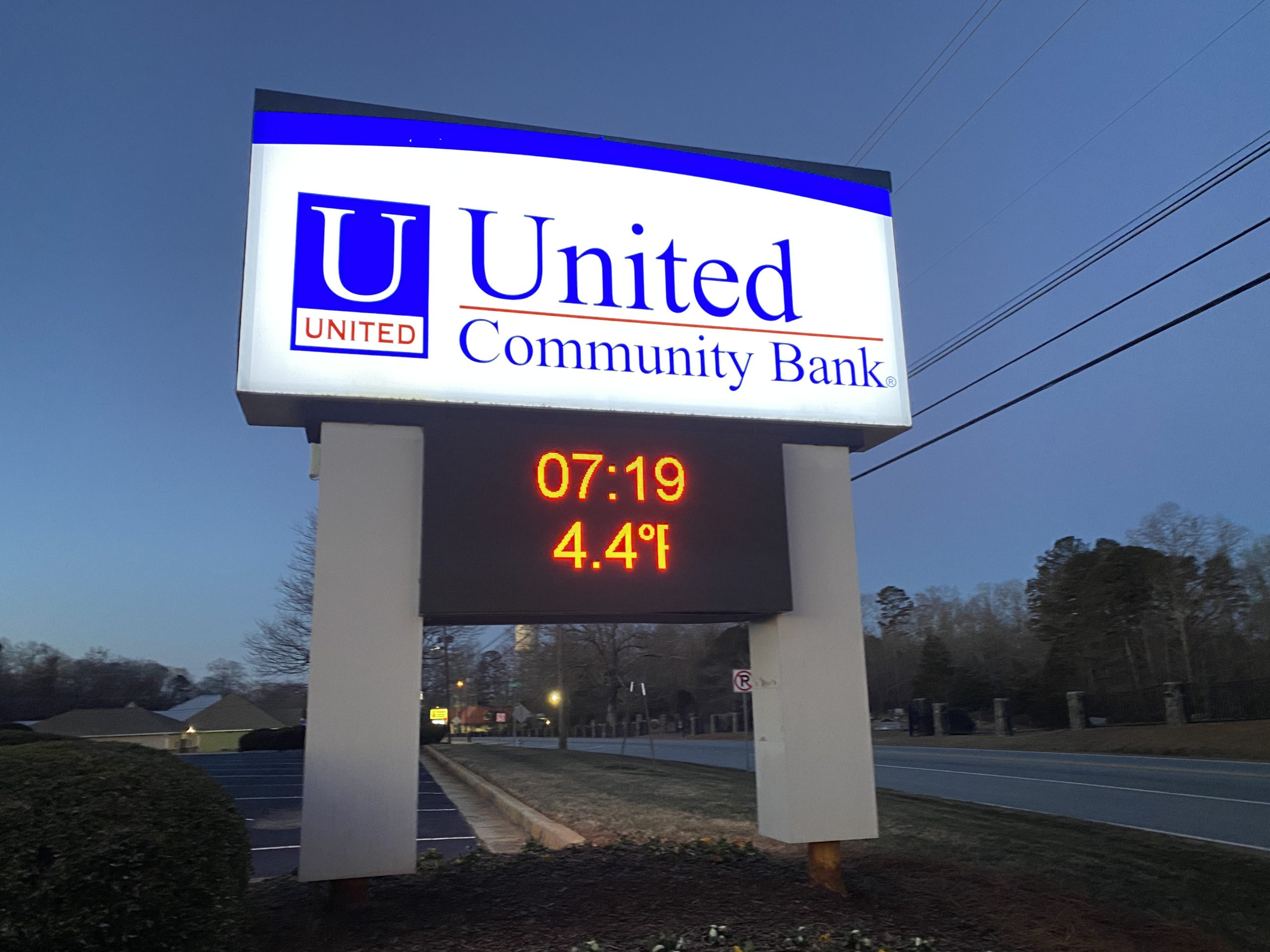(GA Recorder) — Of the 20 states that have failed to raise the minimum wage above the federal $7.25 an hour standard, 17 have more than 12% of their children living in poverty, according to a States Newsroom analysis of wage and poverty data. Anti-poverty advocates say that’s a sign that there’s an urgent need for lawmakers to increase the federal minimum wage and do more to help struggling families.
Congress had the opportunity to achieve the latter by expanding the child tax credit before the end of the year, but lawmakers did not arrive at a deal with Republicans to include it in the omnibus spending package. The expansion, which was part of the American Rescue Plan, provided as much as $3,600 in monthly installments to qualifying families and is credited with lifting 3.7 million children out of poverty, at least temporarily.
Raising the minimum wage would not lead to as fast or drastic an improvement, but a 2019 Congressional Budget Office analysis found that increasing the amount to $15 an hour would lift more than 500,000 children from poverty. And the Economic Policy Institute estimated in 2021 that if Congress passed a $15 minimum wage increase by 2025, up to 3.7 million people wouldn’t have to live in poverty — 1.3 million of those being children.
Ben Zipperer, an economist at the Economic Policy Institute, said there is a strong connection between the minimum wage and poverty.
“It’s not a 1-1 connection, but there is a pretty strong connection,” said Zipperer, whose expertise is on the minimum wage, inequality, and low-wage labor markets. “The main determinants of poverty in this country are whether you work and how much you work, so whether you have a job during the year and how many hours a week or weeks per year you work at that job. … And then the third [determinant] is how much you were paid for an hour of work at your job. If you’re getting paid relatively low wages, the minimum wage affects that.”
Congress last raised the minimum wage in 2009, but 30 states now require employers pay more than the federal standard, according to the National Conference of State Legislatures. Numerous municipalities have also passed living wage laws for city or county workers.
Twenty-seven states, including New Jersey, Florida, California and Missouri, will raise their state’s minimum wage in 2023 after passing legislation or voter-approved ballot measures that gradually increase the state minimum wage over several years or tie it to inflation. Washington ($15.74), California ($15.50) and Massachusetts ($15) will have some of the highest state minimum wages in 2023, although the high cost of living in those states mitigates the effect on poverty rates.
In Missouri, where the minimum wage will be $12 next year, a 2018 analysis from the Economic Policy Institute found that Proposition B, the ballot measure that is responsible for raising the wage, would increase wages for 677,000 people in Missouri.
States where legislatures have not raised the minimum above the federal $7.25 an hour, include Mississippi, Louisiana, Georgia, Oklahoma, Tennessee, Kentucky, Arkansas, North Carolina, and South Carolina. All have child poverty rates of 20% or higher, according to U.S. Census data analyzed by 24/7 Wall Street, a financial news site. Mississippi has the highest child poverty rate in the United States, at 27.6%, with Louisiana following at 26.3%.
Zipperer said that many of these low minimum wage states are concentrated in the Southern United States for a reason. He pointed to the political deals lawmakers made to leave Black workers out of 1930s labor rights gains, which were done for the benefit of Southern Democrats.
“That legacy of racism plagued the initial years of the national minimum wage and labor law generally in the United States, and while it was somewhat improved and overcome through the civil rights movement, you see the parallel to that now where you have a lot of places in the South that don’t have minimum wages and or have very low minimum wages, and so they follow the federal standard which Congress has refused to raise over the past 13 years,” he said.
He added, “That kind of decline in the cost-of-living adjusted value of the minimum wage disproportionately harms the people who are paid the lowest wages in the U.S. economy, and because of our sexist and racist labor market, that is women and people of color.”
In Louisiana, for instance, 64% of women of color earn less than $15 an hour, while 58% of Black workers and 50% of Hispanic workers also earn less than $15 an hour, according to Oxfam America’s analysis of U.S. Census data.
The results of that disparity can be seen in an analysis of data on Lousianans’ standard of living done by Talk Poverty, a project of the Center for American Progress. It found:
- 19% of people in Louisiana had incomes below the poverty line in 2019.
- 20% of working-age women and 29% of Black Louisianans in 2019 lived below the poverty line.
- Louisiana ranked 42nd in the nation in high school graduation rates and 45th in higher education attainment during the 2017-2018 school year.
- In 2018, 20% of young people aged 18 to 24 without high school degrees were not in school or working.
- From 2017 to 2019, 15.3% of Louisiana households were food insecure.
Peter Robins-Brown, executive director of Louisiana Progress, said several factors contribute to the number of Louisianans living in poverty. Louisiana hasn’t prioritized putting funding into programs that would provide economic relief, has focused its tax reform on benefits for the wealthy and for businesses, and has a particularly unjust criminal justice system that punishes the poor, he said.
“Social services in Louisiana are largely underfunded, making it easier for generational poverty to continue,” Robins-Brown said.
The state also favors landlords’ rights over tenants’ rights, and people living in the southern parts of the state that experience the most severe weather disasters have to live with high premiums for homeowners insurance, which further contribute to economic inequality, Robins-Brown explained.
Although Louisiana Gov. John Bel Edwards is a Democrat and has expressed support for raising the minimum wage, both chambers of the Louisiana Legislature are controlled by Republicans. Louisiana is one of 24 states without a process for citizens to offer ballot initiatives and voter referendums.
“Both the House and Senate committees that deal with labor issues are low-priority for Republicans and Democrats because industry interests usually predetermine the outcomes in those committees,” Robins-Brown said.
For these reasons, Robins-Brown says Louisianans are depending on the federal government to take action to raise the minimum wage. He said his organization supported expanding the child tax credit because it was been a powerful tool in reducing child poverty.
Congress last failed to increase the minimum wage in 2021, when it was proposed as part of a larger pandemic relief package. Fifty Senate Republicans and seven Senate Democrats voted against raising the minimum wage to $15 by 2025. The exclusion of the expansion of the child tax credit in Congress’ omnibus bill is one more lost chance to reduce child poverty.
“The child tax credit enormously reduced poverty during the recent expansion of that program, and unfortunately, that was temporary,” Zipperer said. “But I think that’s a very clear demonstration that we actually have, to some degree, the capacity to eliminate a lot of poverty in this country. All it takes is overcoming the political opposition to do that.”














Letter to the editor: Taxes and ‘frivolous spending’ are making our wallets lighter
A recent letter to the editor was sent to Now Habersham under the name Julian Smith. Now Habersham determined the letter was written under a pseudonym and, in keeping with our guidelines, refused to publish it. That same letter was published in the local newspaper. This is in response to issues raised in that letter. The opinions expressed here are those of the author:
I am in complete unison with the letter written by Julian Smith of Baldwin in the November 25th edition of the Northeast Georgian. I, too, have had the same non-response from the Habersham County Parks & Rec Director Brooke Whitmire. Poor communication and poor customer service skills – numerous phone calls, emails, voicemails, and even took off work two days to come in person in hopes to speak with Ms. Whitmire. All that was void to her ears.
I decided after many attempts I would contact the Habersham County manager, Alicia Vaughn, and some of our County Commissioners to see if I could get a better grasp on the lack of communication being given for this public professional that our taxpayers pay for.
The REAL EYE-OPENING experience happened with Ms. Alicia Vaughn, the Habersham County Manager. Had a scheduled phone call meeting with her on Monday, December 5th. She did contact me to discuss issues with Brooke Whitmire, the parks and rec director’s dissatisfactory performance that not only myself but seems other residents are experiencing.
After discussing the matter, I barely got her to take a breath to let me address another concern that I, myself, and other Habersham County residents are wanting more information on. The newly approved seven unnecessary positions that Parks and Rec Director Brooke Whitmire created and voted on by only three of our Habersham County Commissioners after being tabled the week prior – I asked where the fund for these positions is going to be coming from, as residents of Habersham have recently been burdened with the extreme increase in our property taxes this year. I was told, “there is no promise this won’t happen again to fund our budget.”
I was also told that “Habersham County has one of the lowest millage rates in the State of Georgia” and that, with many residents in our county that file for Homestead Exemption, this “hurts our budget.” As if this is supposed to help with the blow of burdening our citizens of the community again with frivolous spending. One with common sense would think that if no readily available funds are in place for this, WHY grasp at what is not there???
This brings into question another suspicious activity that has been the ‘word’ in the community since the new parks and rec positions were approved. After only four short months of having Brooke Whitmire as the parks and recreation director, she conjured up seven new positions. [Word is] that these positions are pre-meditated positions for her previous co-workers and friends from Banks County, as this was where she was in the same position, but we here at the county of Habersham pay more than our neighboring Banks County.
Another Good ‘Ol Boy caveat is about to take place while the wool is pulled over our eyes.
I think the three Commissioners present didn’t have to have their arms twisted too much to agree with this nonsense, seems rather unbelievable that from November 25th until December 1st, it was necessary to hold a special called meeting. What’s the true hurry unless there is possible opposition from the other commissioners or concerned citizens?
As I voiced this concern to Ms. Vaughn, she stated: “There is nothing I can do – ultimately, the hiring and interviews of these seven positions will be conducted by Brooke Whitmire, and if they happen to be from Banks County, there is nothing I can do.”
Seems the schemes of these officials are making our downward spiral of the county speed up at our expense. I was then told if I “don’t have two hours to discuss,” then she couldn’t get into any more detail with me.” Seems like feathers were getting ruffled; she doesn’t want to have to answer questions/concerns. She hurriedly got me off the phone.
Later the same day, a VERY shocking and jaw-dropping experience happened with Ms. Alicia Vaughn!
After contacting her about no communication with Brooke Whitmire, the parks and rec director, I was wanting to make her aware. I got yelled at, screamed at, and belittled by our Habersham County Manager, Alicia Vaughn. As she screamed at me over the phone, I asked two times, please quit yelling at me. She kept on – I hung up the phone on Alicia Vaughn.
I was in total disbelief that a lady of her elite title and profession would talk to a Habersham County resident in this tone & character. Ms. Alicia Vaughn’s TRUE COLORS came out on December 5th!!
I have to say our county of Habersham has the wool pulled over our eyes, and our taxes are funding these unprofessional, callous ‘gold diggers’ and their frivolous spending for not only us to be in debt to but also our children and grandchildren.
I ask, as a concerned citizen, that we bombard the phones, emails, and offices of these elected commissioners and the Habersham County Manager. The Commissioner meetings are happening, and our wallets are getting lighter by standing by and watching the money dwindle.
Julia Braswell
Clarkesville
___________
Now Habersham encourages you to submit letters that share your opinions on issues of interest to residents in our community and the Northeast Georgia region. Click here for submission guidelines.